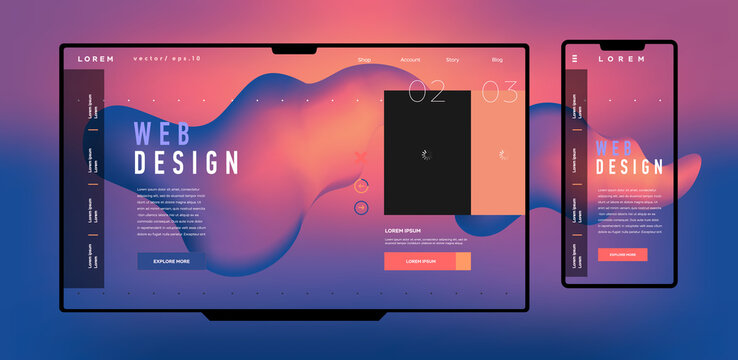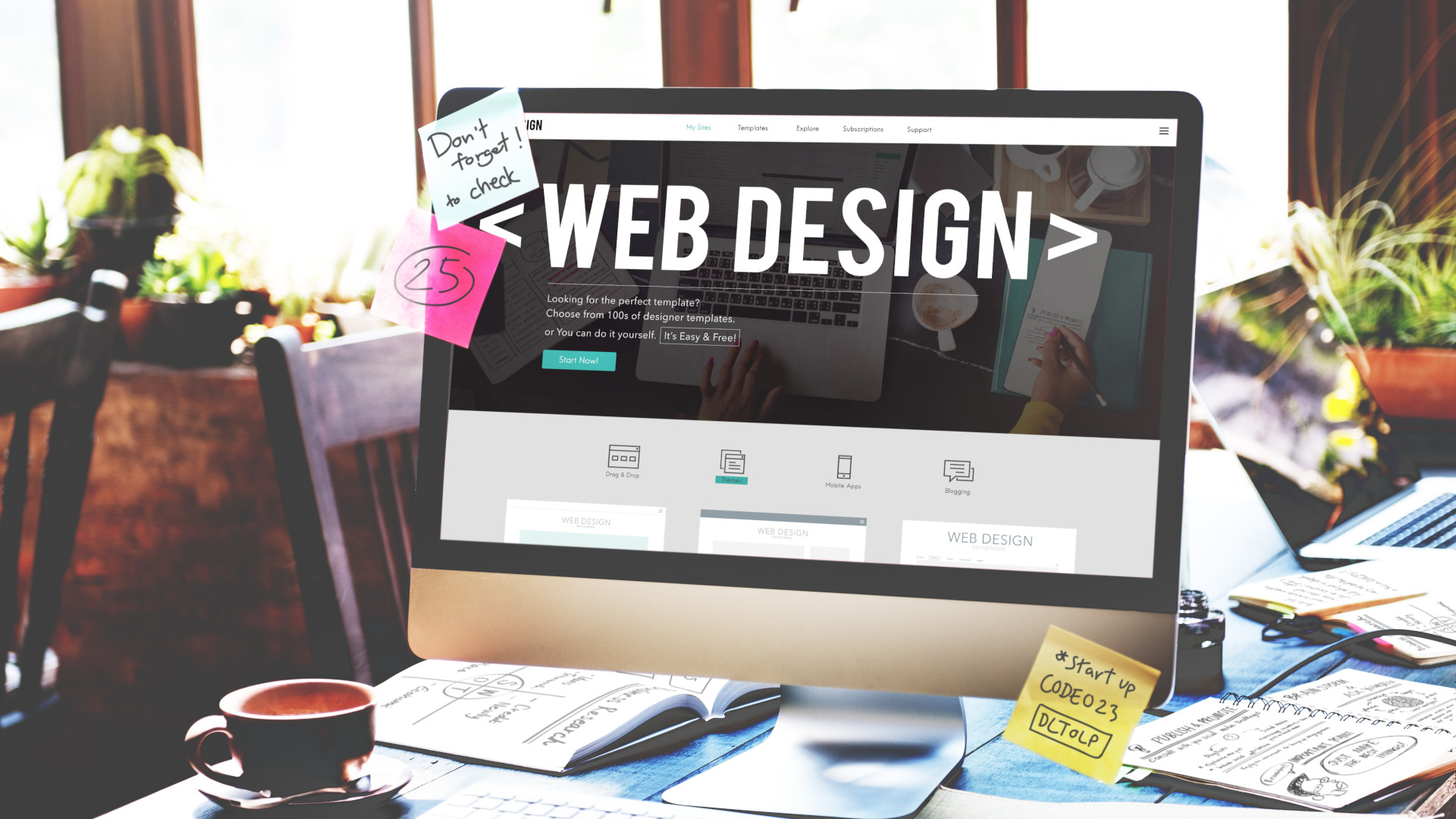Tailored Website Design Solutions to Fit Your Brand Needs
Tailored Website Design Solutions to Fit Your Brand Needs
Blog Article
Leading Tips for Developing an Impactful Website Style That Converts
To accomplish this, one need to think about a selection of factors, consisting of understanding the target audience, prioritizing individual experience, and maximizing for mobile systems. The tactical usage of compelling call-to-actions and a well-defined visual hierarchy plays an important duty in leading customers via their trip.

Understand Your Target Audience
Recognizing your target market is essential to efficient internet site design, as it prepares for producing an engaging user experience. Determining who your customers are, including their demographics, choices, and behaviors, allows designers to tailor the internet site's content, design, and capability to meet certain requirements.
Carrying out thorough marketing research is crucial in this procedure. Studies, interviews, and analytics can give beneficial insights right into customer expectations and pain points. By compiling this data, designers can create individual personalities that represent various sectors of the audience, making certain that design decisions are informed and appropriate.
Moreover, comprehending the target audience helps in selecting appropriate style components such as color design, typography, and images that reverberate with users. A site that talks straight to its target market fosters a sense of link and trust fund, urging longer gos to and greater conversion rates.
Ultimately, a user-centered approach to site style not just boosts user fulfillment however additionally sustains service objectives by driving engagement and commitment. By prioritizing the requirements and preferences of the target audience, a site can successfully serve its function and attain wanted results.
Prioritize User Experience
To improve the overall efficiency of an internet site, focusing on customer experience (UX) is essential (Website Design). A properly designed UX guarantees that site visitors can browse the website effortlessly, discover information rapidly, and engage with content meaningfully. This leads to enhanced customer satisfaction and greater conversion rates
Begin by implementing instinctive navigation. Menus must be practically structured, enabling customers to find key locations of the website with minimal initiative. Consistency in style aspects, such as color pattern and typefaces, cultivates familiarity, which is vital for preserving individual involvement.
Additionally, take into consideration the loading speed of your site. A delay of simply a couple of secs can bring about considerable drop-offs, as users are much less most likely to wait on a slow-loading web page. Improving pictures and enhancing code can enhance efficiency and retain visitors.
Moreover, clarity in content presentation is vital. Usage succinct, interesting language and separate text with visuals to improve readability. By focusing on customer experience, you not just create a more enjoyable environment for site visitors yet likewise reinforce your brand name's integrity. Inevitably, an emphasis on UX is a financial investment in the long-term success of your site.
Maximize for Mobile Devices
Enhancing for mobile phones is vital in today's digital landscape, where a raising home variety of individuals gain access to sites with smartphones and tablet computers. A mobile-friendly style not only improves customer experience yet also plays a considerable function in improving search engine rankings. To attain this, it is important to embrace a receptive layout that instantly adapts to various screen dimensions and alignments.

Filling rate is an additional critical variable; mobile users are typically much less person and expect quick accessibility to details. Optimize photos and take advantage of web browser caching to improve efficiency. Ultimately, test your internet site on numerous tools and screen resolutions to determine and correct any prospective functionality issues. By prioritizing mobile optimization, you make certain that your site remains competitive and efficiently involves a broader audience.
Use Compelling Call-to-Actions
A website's effectiveness usually pivots on its ability to guide visitors towards wanted actions, making compelling call-to-actions (CTAs) essential parts of layout. CTAs function as the pivotal points that direct customers to engage with the website, whether that indicates purchasing, authorizing up for a newsletter, or downloading and install a source.
To produce efficient CTAs, clearness is critical. Use concise language that clearly interacts the activity you want the customer to take. Expressions such as "Get going," "Subscribe Free," or "Shop Now" not just convey urgency yet likewise eliminate obscurity. The positioning Continue of CTAs is similarly vital; they ought to be strategically placed throughout the website to ensure they are quickly visible, especially in high-traffic areas.
Furthermore, consider making use of directional cues, such as arrows or photos, to lead individuals towards these buttons. By focusing on these aspects, businesses can considerably improve customer interaction, driving conversions and eventually attaining their internet site's objectives.
Concentrate On Visual Power Structure
Efficient internet site design depends heavily on a well-structured aesthetic pecking order that overviews users via content flawlessly. By arranging elements in a fashion that focuses on information, developers can improve user experience and assist in decision-making. This involves using dimension, shade, comparison, and spacing purposefully to attract focus to the most critical elements get more of a web page.
Using bigger typefaces for headings and subheadings establishes a clear distinction between various areas, enabling individuals to check content easily. Furthermore, employing contrasting shades for switches and calls-to-action can record individual focus and urge communication. Whitespace is one more crucial element; it avoids mess and allows customers to concentrate on vital messages without interruptions.
Pictures and graphics need to complement the message while likewise adhering to the established pecking order, enhancing the overall message (Website Design). Uniformity in layout components, such as color systems and typography, more reinforces the visual hierarchy, making navigation intuitive

Conclusion
In verdict, effective web site design demands an extensive understanding of the target audience, prioritization of user experience, and mobile optimization. Eventually, a well-executed website design offers as a crucial part in driving user activities and attaining company goals.
Report this page